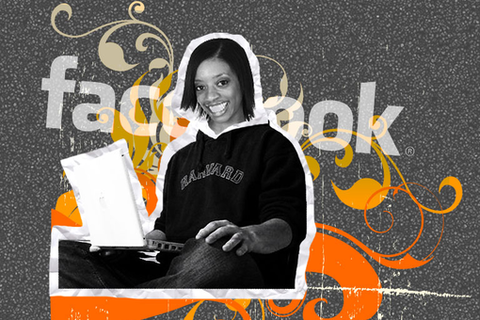
The tech world used to be dominated by men, where women had to prove themselves and have extra skills just to be considered for a position or even taken seriously. While the situation has improved over time, computer science classes in college are still mostly attended by males and successful tech companies or start ups are often run by males. White or Asian males that is. So where are all the females and members of other races?
This is where the panel “The Most Wanted Unusual Suspect: Markia Zuckerberg” comes in. Glennette Clark, president of Smarter Experiences, will tackle the issue of diversity in the tech industry together with Shireen Mitchell, founder of Digital Sisters.
Clark got her start in the tech industry in 1994 working in web design and development, a time when not everyone had a website, and not everyone believed in this new, emerging technology. “It was then that I predicted that the Internet would be the key to lowering the barrier of entry for small businesses and start ups to compete with big businesses. I was right. Almost 20 years later, one could not have predicted the shake up in retail, media, and our means of consuming any and everything. However, I also noticed that there were still those that were being left behind. This revolution did not help everyone to shake things up.”
Females as well as racial minorities became avid users of the Internet, yet not too many of them used it to create the next big thing or to start a business. Clark, who worked for the 2010 Census in Washington DC, observed a different digital divide, not just access to new technology, during that time. “I noticed that, when going to the libraries and meeting people in their homes, almost everyone was on Facebook or Twitter. So, there was no real lack of access to the Internet. There was a lack of desire or even motivation to create something for the Internet. What I saw was a lot of potential consumers, but no potential producers.”
Living in a country that is becoming more and more diverse by the minute, one needs to think about this lack of female and minority producers. Having difficulties breaking through, in such a White and Asian male controlled industry, might be deterring some potentials and hopefuls. Clark explains difficulties she has faced in her own career. “Personally, being a black woman in the tech field is hard. I ran my own web development company for about five years and it was hard. I found that potential clients didn’t want to pay me for my years of experience. Eventually, I went back to work full-time to meet my family obligations.” People should not care whether their web developer is white or black, male or female as long as they do the job and they do it right. Otherwise this just sends a dangerous message to future generations. We need to encourage young girls to pursue an education they enjoy and if they want to be a web developer they should not be deterred by difficulties entering the industry. Who is to say that the next Steve Jobs is not a Hispanic or Black woman?
This panel will tackle the issues one can face as a female or member of a minority in a male dominated industry, such as the tech community. Asking Clark why people should attend her panel she gave multiple compelling reasons. “People should come to my panel if they want to discuss real solutions to this challenge. People should come to the panel if they want to hear from a real live black woman who has been in the field for more almost 20 years. People should come to the panel if they want to create an action plan for this and future generations.”
Sounds promising all around so I hope to see you there!
